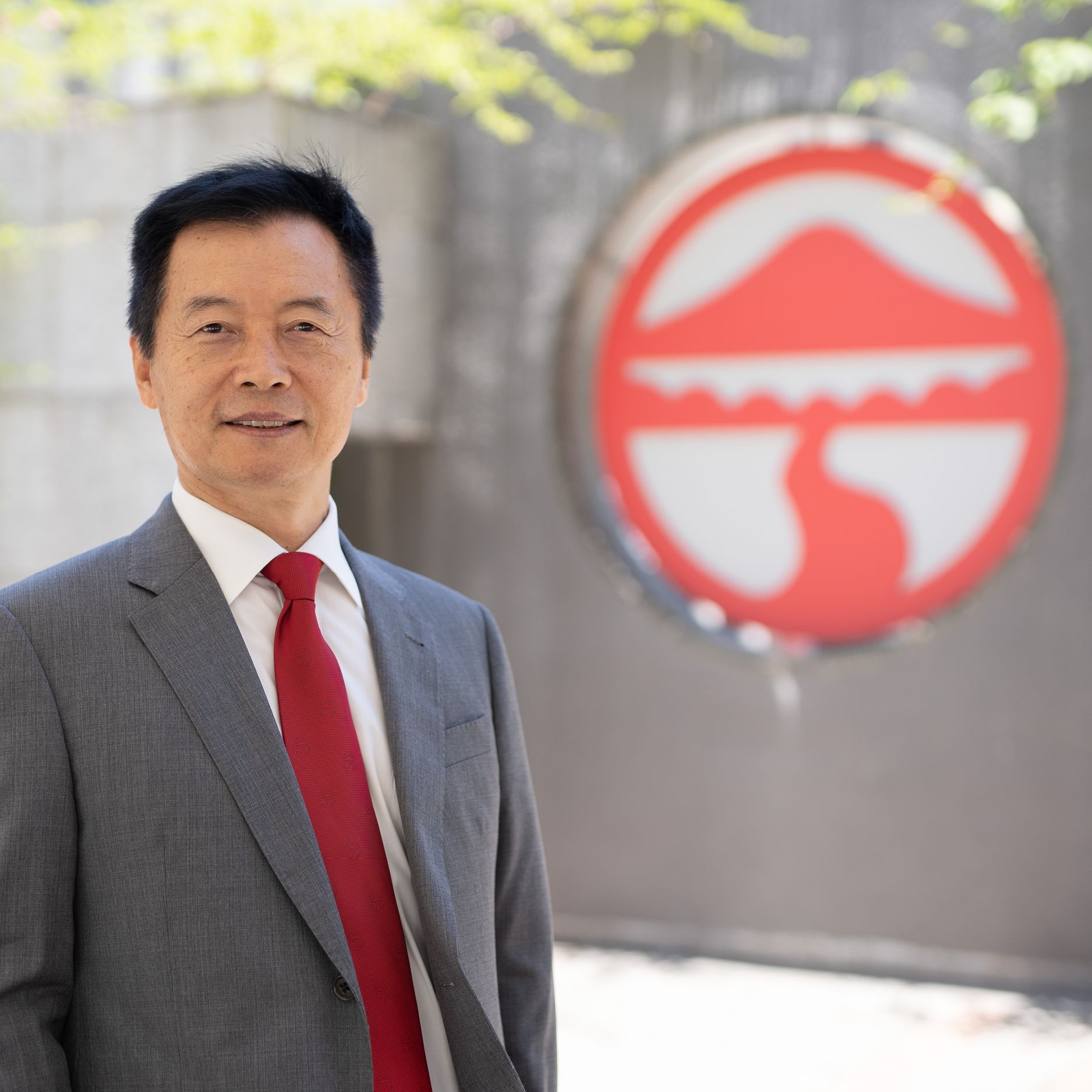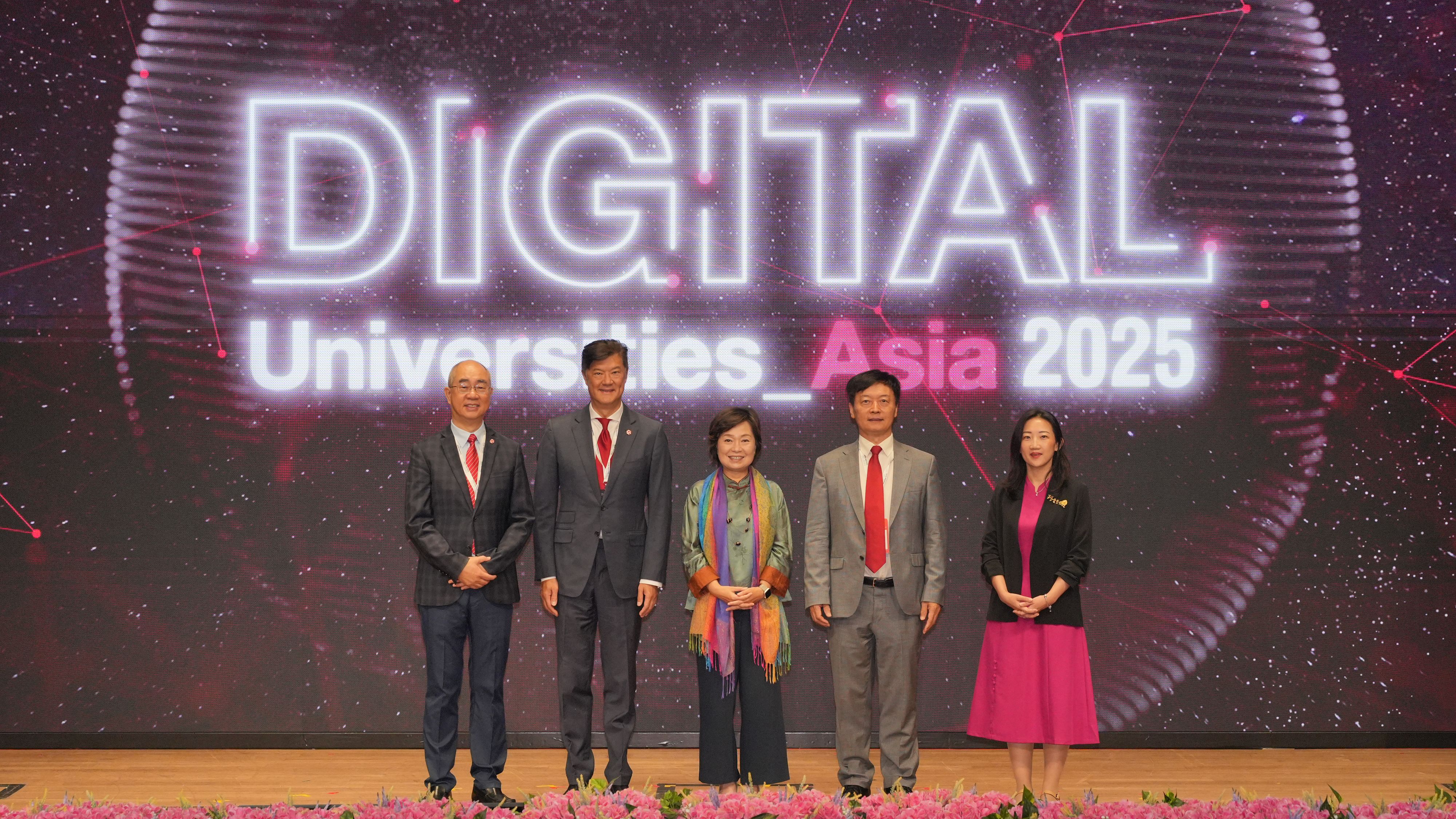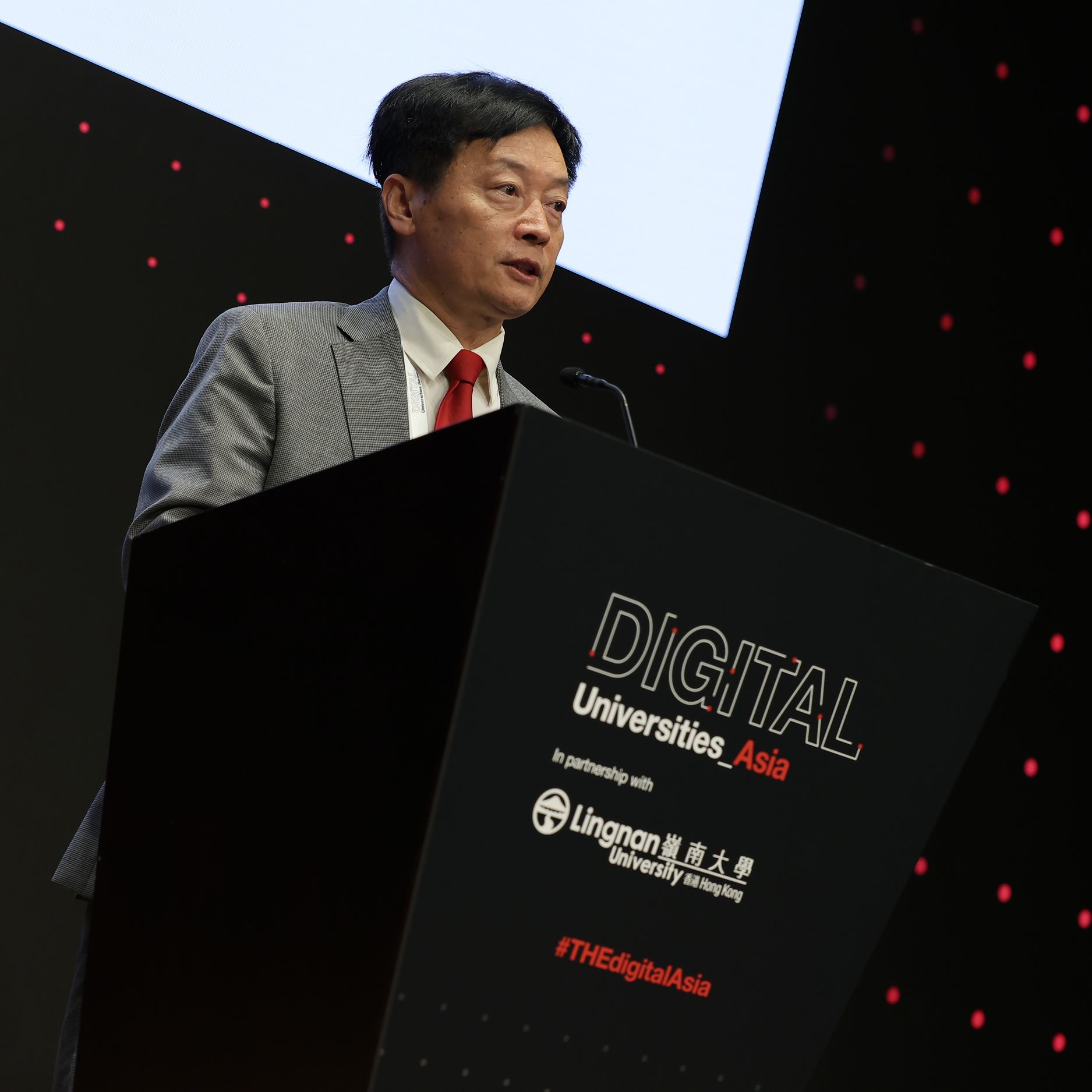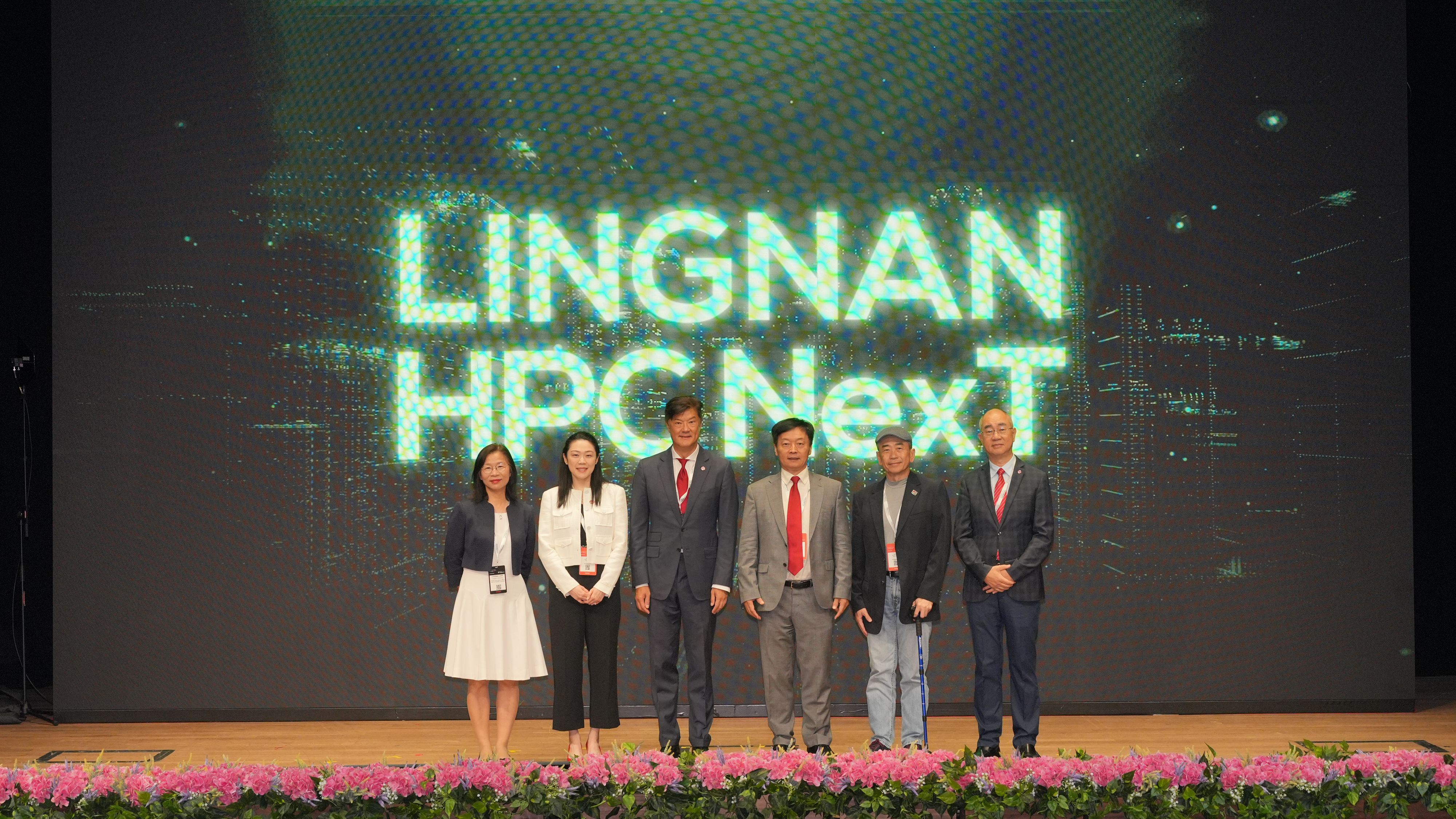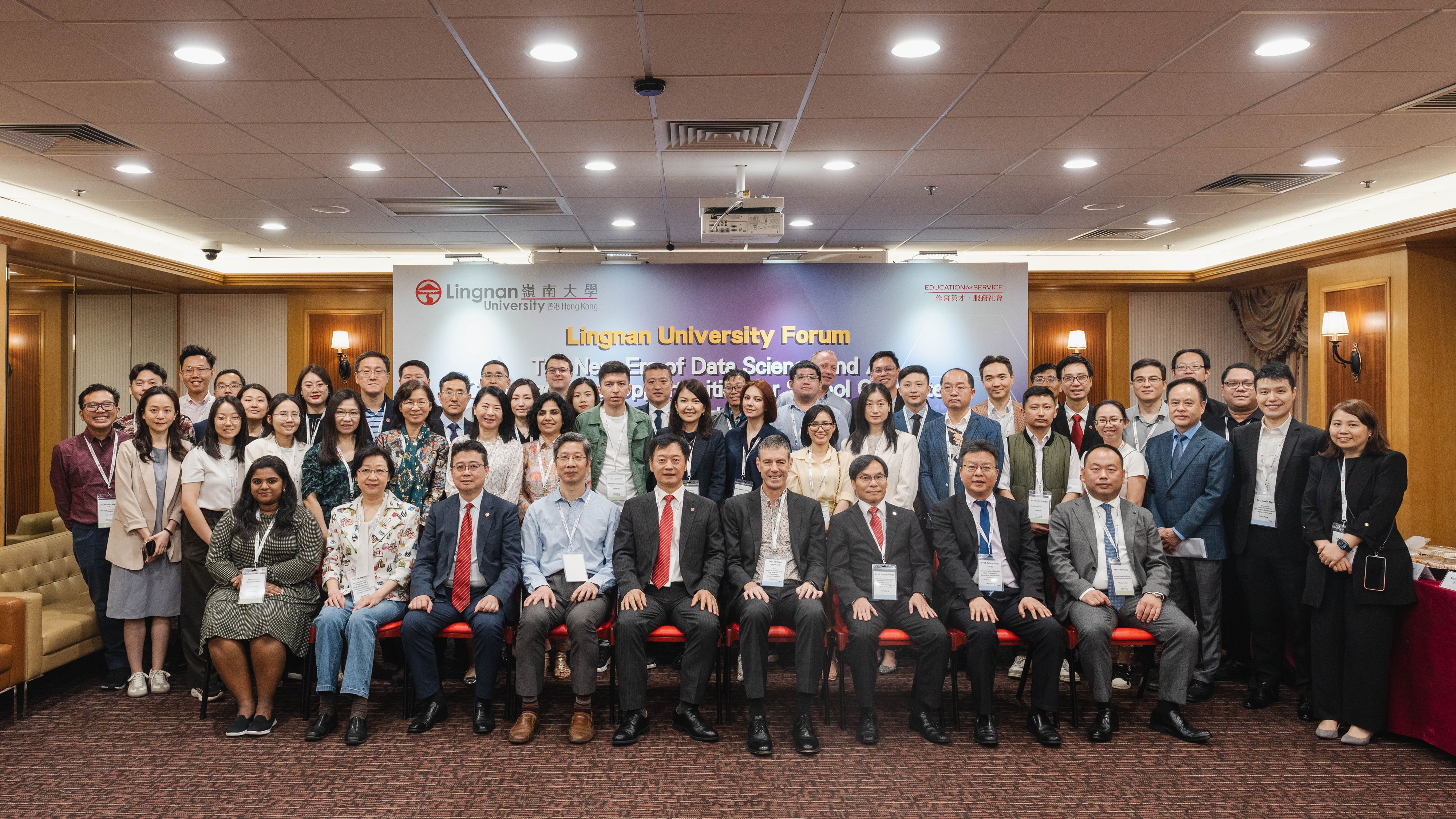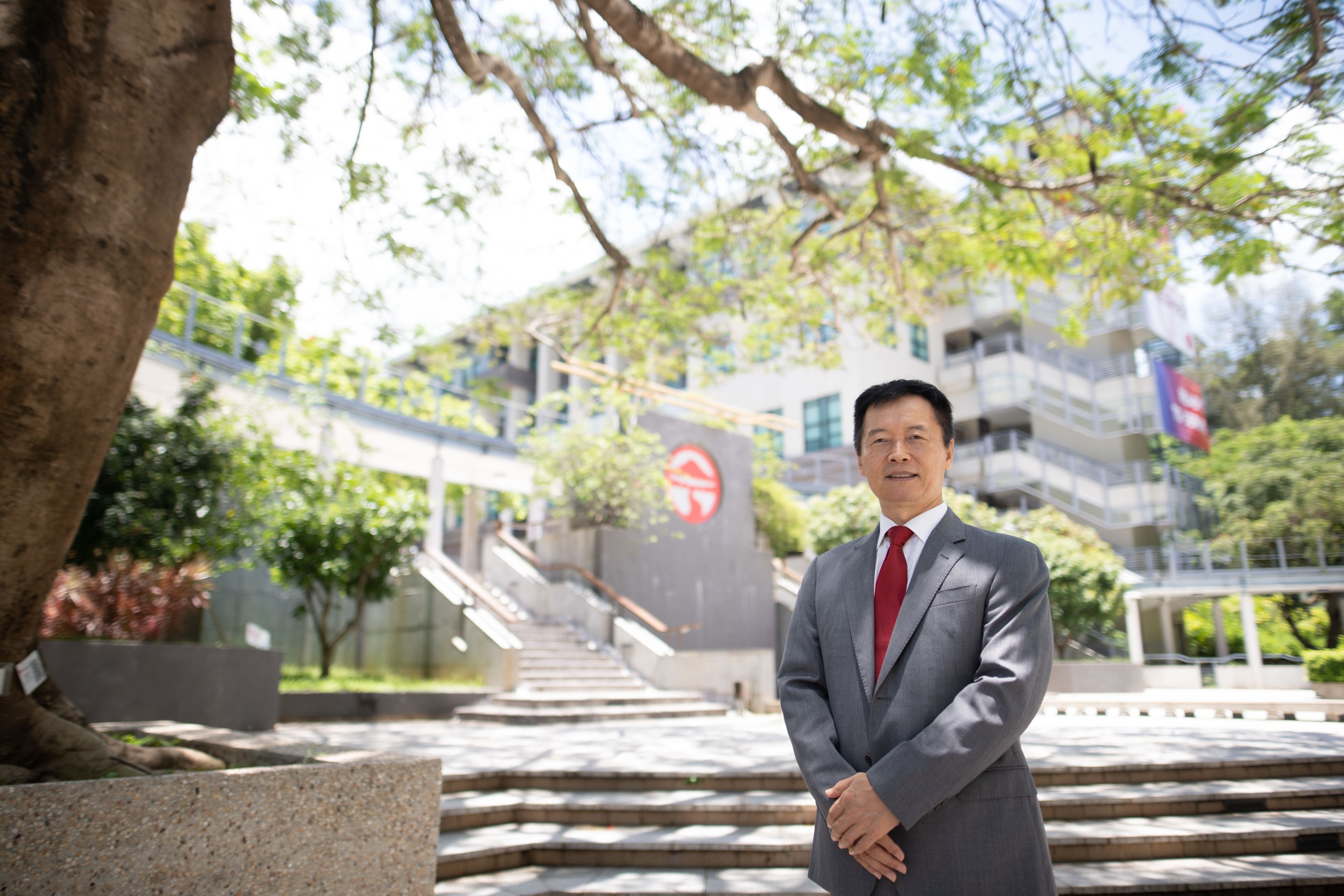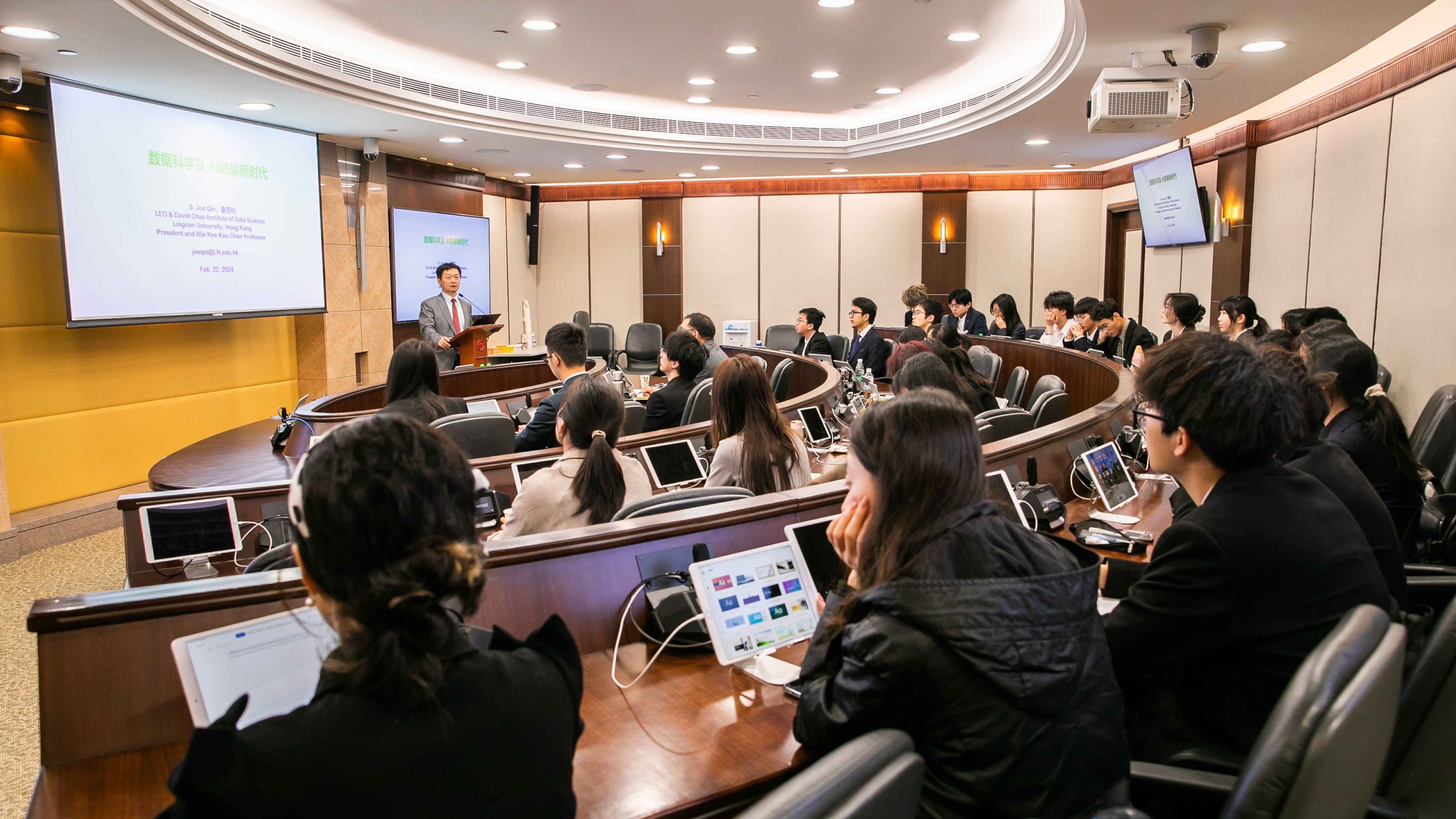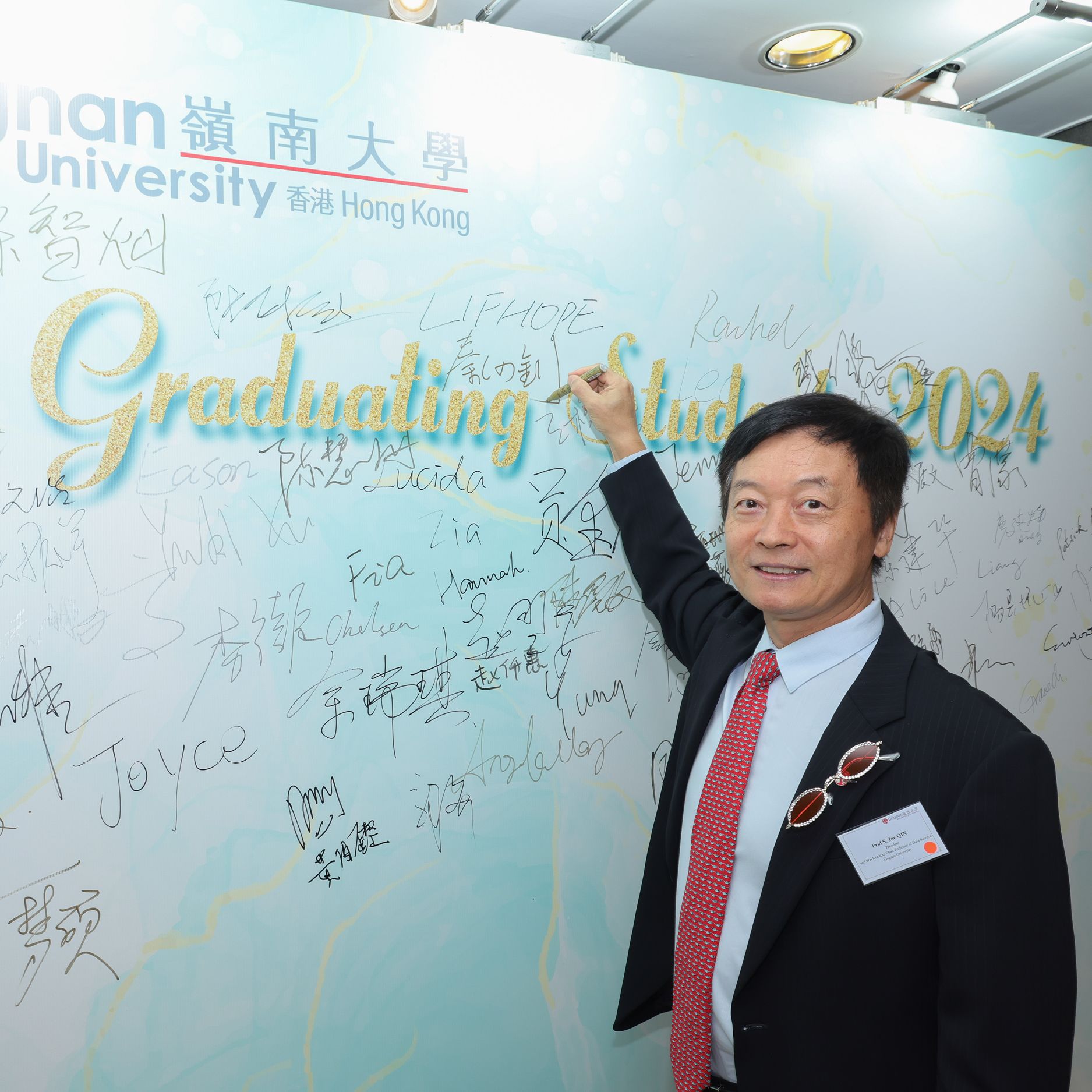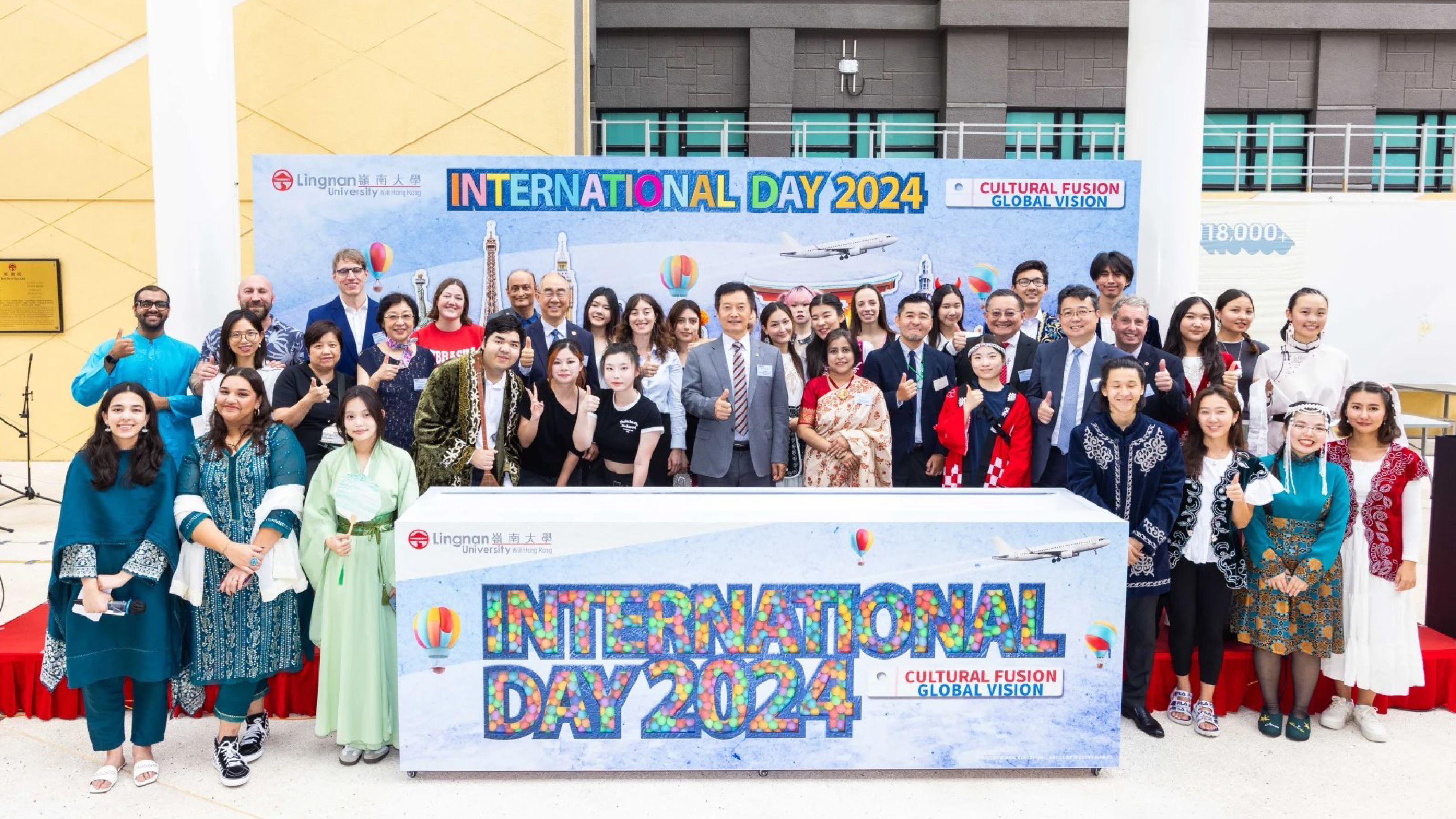Embracing technology to future-proof higher education
Lingnan University’s bold new vision for education hinges on broadening access to technology and adopting a holistic view of skills development

Widely regarded as the biggest transformative force of our time, AI is predicted to bring sweeping changes across diverse sectors. In higher education, it not only compels universities to adapt but also to reimagine pedagogy to ensure long-term graduate success. Embracing AI holistically will help universities support students and equip them for a world of work that has yet to take shape.
Lingnan University in Hong Kong has embarked on a journey of transformation to adapt liberal arts education for the digital era. It has made significant progress in harnessing new technologies while simultaneously strengthening engagement with students, graduates, staff and international partners.
The university has curated a culture of innovation, inclusion and growth on campus. Its vision for education involves developing the whole individual rather than focusing on transient skill sets. “We think educating people is more important than teaching a skill that might be obsolete in 10 years,” says S. Joe Qin, president of Lingnan University. “Our goal is to equip students with adaptable knowledge and skills that remain relevant for decades, not just a few years.”
Lingnan University has undergone a period of significant strategic innovation under Qin’s leadership. “We knew that digitalisation and deepening research had to be core directions for Lingnan University to stand out among global liberal arts universities,” he says.
“Our goal is to equip students with adaptable knowledge and skills that remain relevant for decades.”
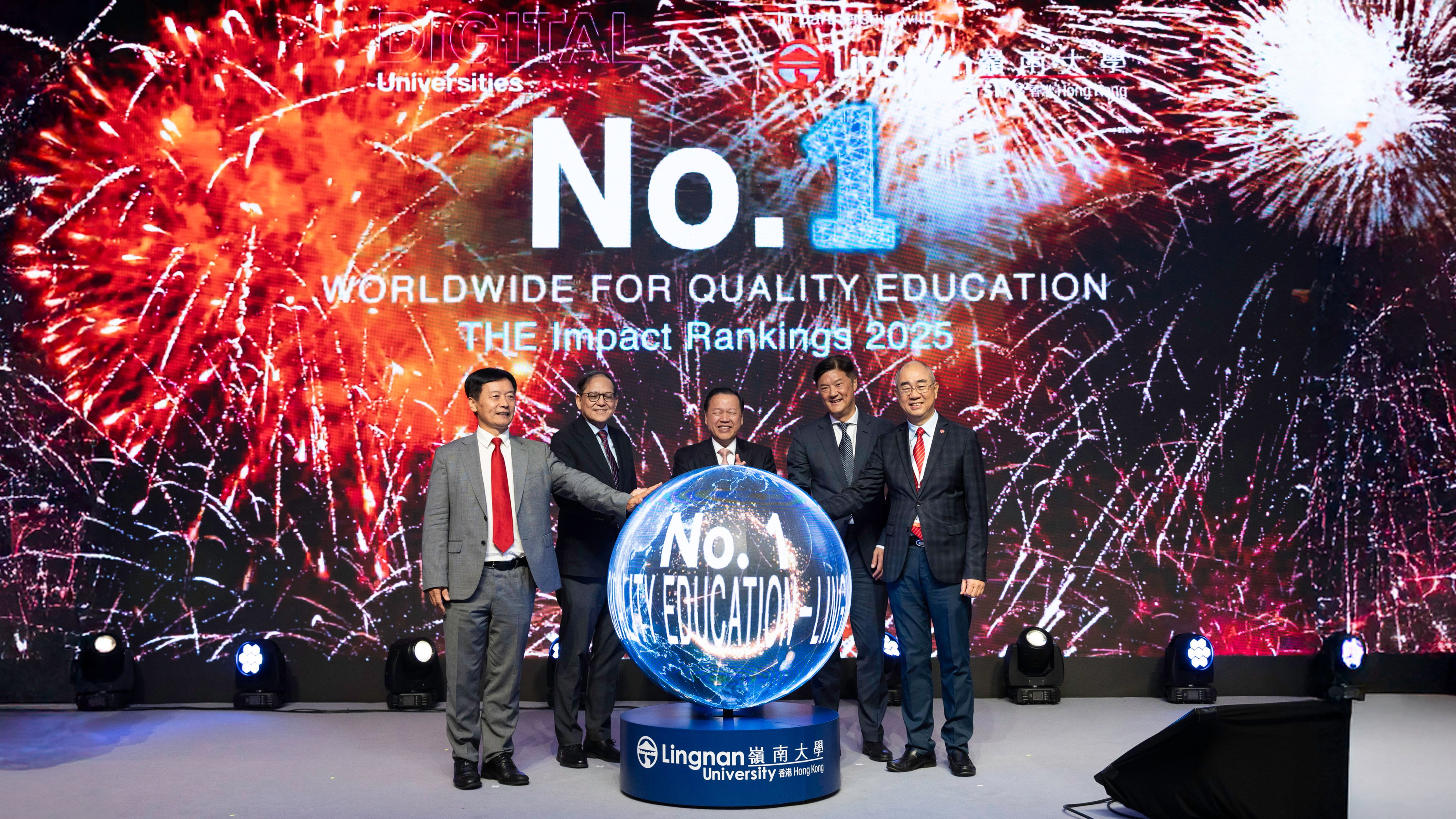
This called for changes in the university’s governance and, crucially, a mindset shift among all stakeholders, including faculty, staff and alumni. Achieving this involved extensive outreach from the president, including written letters and town hall meetings, articulating the essence of liberal arts education in a modern context.
These strategic changes are yielding positive results. For example, in the 2025 THE Impact Rankings, Lingnan University ranked number one globally for quality education. Based on the United Nations Sustainable Development Goal on quality education, this metric evaluates how universities promote equitable access to education and equip students with relevant skills for the future workforce.
In the digital era, access to technology plays a huge role in future-proofing graduate skills and success. To further cement Lingnan University’s position as a world-leading institution, the university has decided to provide free, campus-wide access to generative AI tools, such as ChatGPT and DeepSeek, for staff and students.
“For a liberal arts education, AI will have a profound impact on how we create and interact with various forms of communication,” Qin says. “It is the responsibility of educators to equip students with the skills relevant to a future job market that will inevitably be shaped by AI.”


However, institutions must carefully navigate the risks and opportunities associated with AI. From privacy concerns to fears of job losses, there is a spectrum of attitudes and potential pitfalls to generative AI. Perhaps the most effective way to address these concerns is to ensure individuals of all ages and skill sets are able to use AI responsibly and ethically.
“The confidence I have in my decision granting greater accessibility to AI tools stems from over 30 years of experience in the field, including my PhD work in machine learning,” says Qin. “I don’t see the rise of generative AI as an industrial revolution but as an intellectual one.” He identifies AI as a tool that can fundamentally transform how people communicate, produce and interpret media such as text, image and video.
As Qin says, broadening AI use among Lingnan’s students and educators is a reflection of how new digital tools are reshaping higher education. Just as previous generations adapted to modern software suites and tools, Lingnan’s students are leveraging AI tools to boost productivity and augment critical thinking, not to substitute it.
“Our aim is to ensure Lingnan graduates are at the forefront of this new paradigm, armed with the skills to effectively utilise AI for report writing, content generation and critical analysis,” Qin says. For most careers, it will serve as a powerful assistant, much like Microsoft Excel. “You will still have to do final checks and quality control, and ultimately, be responsible for the work.”
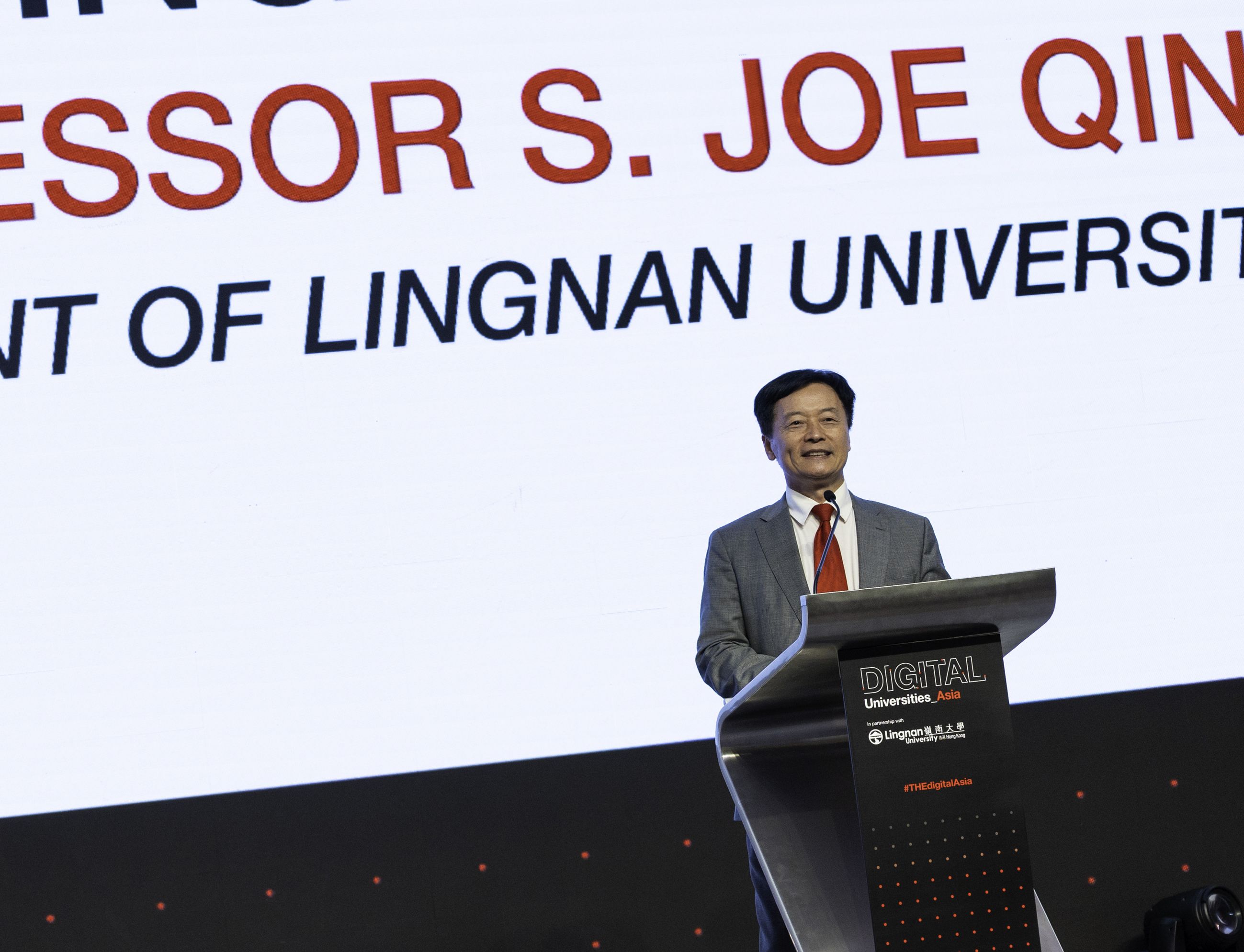
To embed the essential skills that graduates will need in the future, Lingnan University has introduced a compulsory first-year course on generative AI for all its students. This course focuses on critical thinking and ethical AI use alongside technical knowledge. This stems from the recognition that human values will continue to be a crucial part of AI proficiency.
Even as Lingnan University has embraced new pedagogies and digital transformation at pace, the university remains rooted in the importance of human values. Its motto, “education for service”, embodies a 130-year tradition of openness and responsiveness to community needs.
The university’s online platforms and library services also provide wide access to its resources as part of a broader lifelong learning strategy. For instance, the university offers free online courses, such as the bilingual, self-paced course on ethics and global catastrophic risks.
“Lingnan actively reaches out to learners of all ages,” says Qin. Its gerontology centre has provided vital services and guidance for the elderly for nearly two decades, fostering community engagement. Launched in 2019, the university’s Gerontechnology Practitioner Training Course teaches participants how technology can improve healthcare, day-to-day living conditions and transport for the elderly, helping them adapt to the rapid changes taking place in wider society.
“I don’t see the rise of generative AI as an industrial revolution but as an intellectual one.”
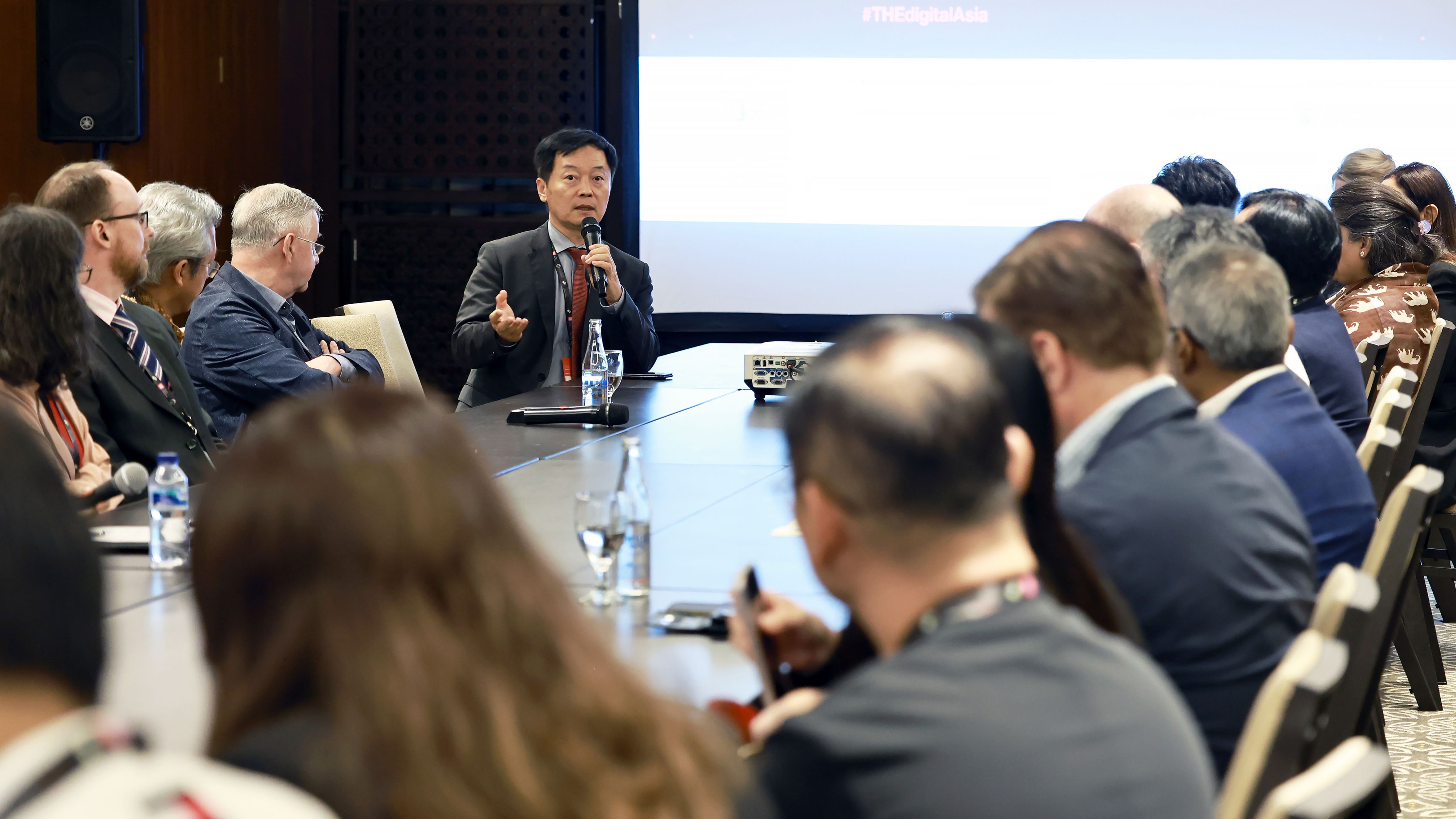
The gerontology centre supports the university’s efforts in promoting lifelong learning and intergenerational harmony by welcoming individuals of all ages. Additionally, the university’s connection with local middle schools, including its own Lingnan Secondary School, demonstrates a holistic approach to education that extends beyond its university campus. “This deep integration with our local community is fundamental to our mission,” Qin says.
Such societal benefits are more easily achieved and shared more equitably if individuals are equipped with skills that stretch beyond the confines of traditional pedagogies. The rapid pace of digital transformation means the modern world of work demands more flexibility from graduates. It is essential that university courses enable this. These values are reinforced by the Lingnan University Institute for Advanced Study (LUIAS), which bridges the gap between science and liberal arts by using technology to amplify creativity and critical thinking.
With a network of leading scholars from around the world, LUIAS acts as a vehicle to enhance Lingnan University’s international research partnerships and academic reputation, notes Qin. LUIAS not only serves as a hub for interdisciplinary and transdisciplinary research, education and public engagement but also enables the university’s faculty members, students and the wider community to engage with globally renowned experts.
Lingnan University’s vision for the future of higher education doesn’t focus solely on digital innovation. Attracting and nurturing international talent is an important pillar of its blueprint for growth. The university currently has close to 8,000 students on campus, necessitating a corresponding increase in faculty members. The university plans to diversify and scale its academic programmes through the Lingnan-60 Global Talent Recruitment scheme. The initiative will further internationalise the institution’s faculty to better reflect an increasingly globalised workplace and higher education sector.
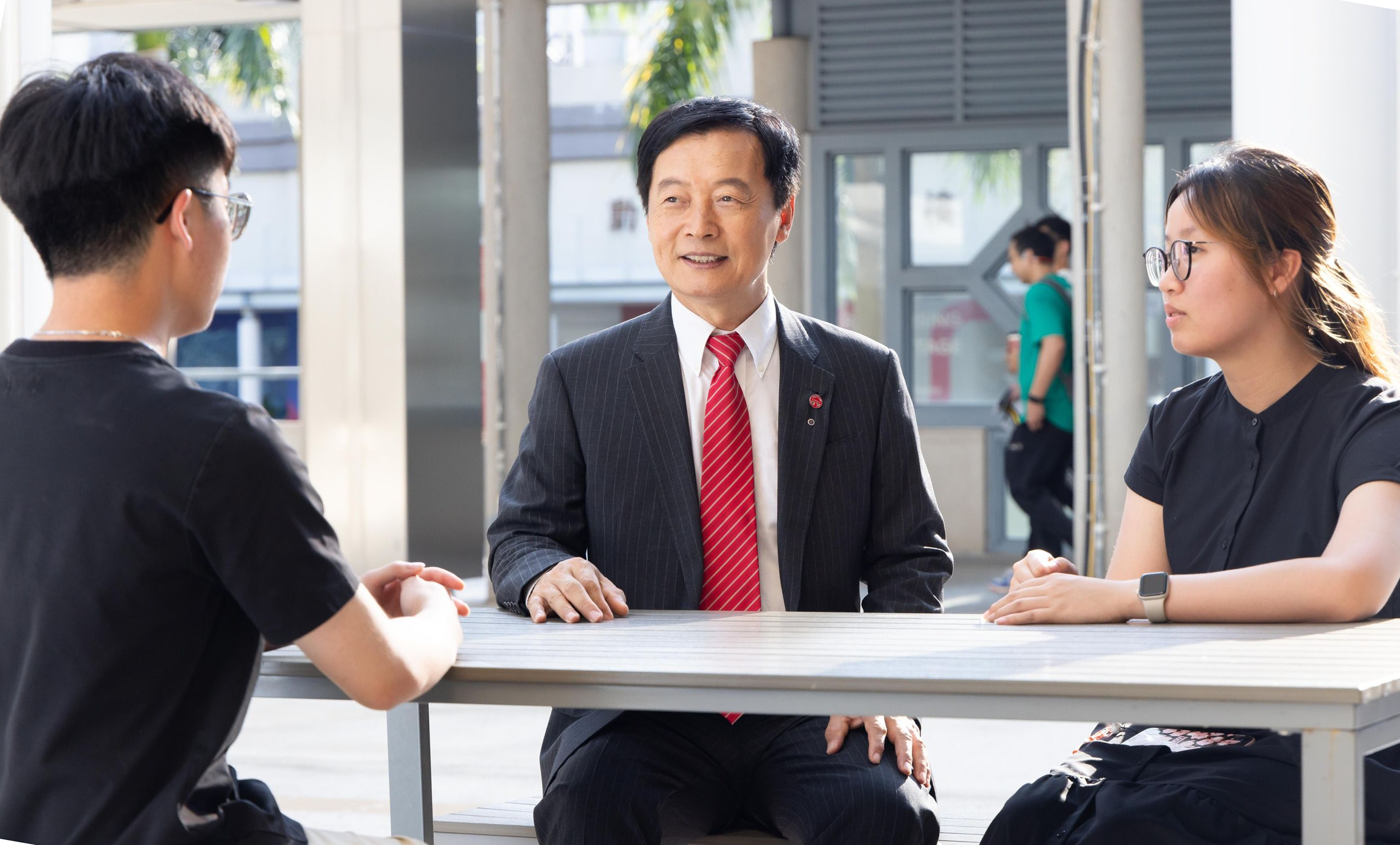
“Our target is to add 60 new world-class faculty members and we’ve already brought in 26 exceptional individuals,” Qin says. Crucially, the university looks at a prospective hire’s digital inclination and ideas for integrating digital tools into their respective fields, even in traditional humanities disciplines.
With new departments dedicated to AI and sustainability, strengthening the university’s science division is an important part of Lingnan’s recruitment strategy. Looking ahead, the university plans to expand its campus to support its growing student numbers. The goal is to deepen digital penetration across all disciplines and ensure Lingnan graduates possess unique skills that differentiate them in a rapidly evolving job market.
While some institutions remain ambivalent about embracing new technologies, under Qin’s leadership, Lingnan University views it as a valuable tool for staff, students and other stakeholders. Quality education will remain the university’s foundation, but future-proofing its academic programmes requires it to adapt to evolving technological and workplace norms.
“Quality education is our backbone,” says Qin. “Lingnan University will move forward with a strong focus on liberal arts.” Although Lingnan University remains rooted in liberal arts education, it is committed to evolving into a research-orientated university, comprehensive in both arts and sciences for the digital age, Qin adds. This is a shared vision, embraced by its entire community.
